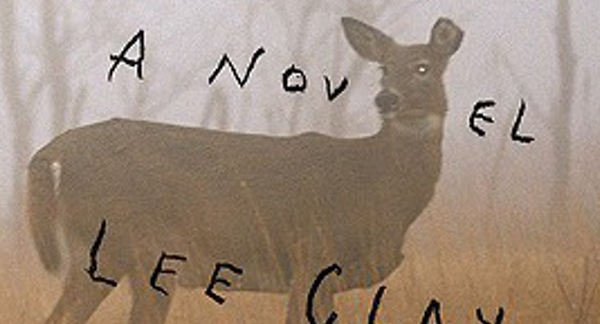Books & Culture
Lee Clay Johnson Explodes onto the Scene with Nitro Mountain
A Review by Bradley Sides

There is a place where it is hot bourbon, not cool water, that bubbles down the streams, and blood, rather than rain, drips as fertilizer onto the dying grass. It is here that kids know little of innocence, but they know a lot about guilt and toughness. This is America’s Appalachian underbelly. Such is where Nitro Mountain is — the titularly-named peak where Lee Clay Johnson sets his daring debut novel.
Johnson centers Nitro Mountain on a trio of oddballs. Leon, the heart of Johnson’s novel, is an unfocused, twenty-something dreamer. He lives with his parents and takes on jobs requiring little commitment. Even with a broken arm, he fantasizes about becoming a bass player in a country music band, and, for a while, he lives his dream. He is taken away to play at places outside of his hometown, but Nitro Mountain keeps calling him back.
Johnson seeks to ask his readers, especially those familiarly acquainted with a tinge of a dark past, to recall the pains of separation. Is it possible to ever really leave a dangerous love behind? Can we truly forget the name, the face, or the place?
Leon knows that he shouldn’t return to Nitro Mountain. He’s aware of what his home is. He says, “Do you know what growing up means? It means learning to beat a woman. Trying to kill a man. Posting up at a worn-out palace with a loaded gun and waiting to deal with the consequences.” For Leon, though, the scent is too strong.
Part of what keeps Leon at home is Jennifer, the woman he loves. Leon sees himself and Jennifer as two tamed outsiders who live among feral animals. And he’s partially right — at least about himself. Leon is uncomfortable around the intense masculinity that surrounds him. He tries to stay away from the fighting, the crime, and the general aggressiveness. He wants to separate himself, but he’s too weak to do so: “Choosing not to hunt around here was tougher than doing it.” He’s not strong enough for Nitro Mountain. Later, he remarks about how Jennifer sees him as being different: “She often said I was too soft, and out of everything she called me that hurt the most because it was true.” Leon might not fit in on Nitro Mountain, but Jennifer does.
Jennifer spends much of the novel oscillating as the girlfriend between Leon and Arnett, a psychopath reminiscent of McCarthy’s Judge Holden. With Leon, Jennifer plays sly and almost seductive, trying to fit into Leon’s fantasy world; however, with Arnett, Jennifer is vicious and vindictive. In fairness, she has to be to survive. Arnett, with his deceptively childish Daffy Duck neck tattoo, is violent and cruel. He’s also a voyeur with a “Toilet Bowl Guy” alias, as he sets up cameras in the local bar’s women’s restroom. He is easily the most dangerous man on Nitro Mountain. Jennifer must bend to expectations just to survive. While it might seem like an easy decision for Jennifer to join Leon and together leave Nitro Mountain, actually saying goodbye to the world that she knows and somehow loves is difficult.
Although Nitro Mountain is a debut work, Johnson shows an incredible control of language. The narration is simple, but it enhances the world in which he plants us. Much of the dialogue is clever — even cheeky at times, with these dangerous and often vile characters telling jokes at the same time that glasses are shattering or skulls are cracking. Johnson uses humor to cut some of the darkness. Leon, the broken-armed bass player, is a character who could just as easily appear in an O’Connor piece. In another scene, a character tells a story about a man who cut off his wife’s hands for touching his new car. The kind of car? A Ford Focus. Yes, it’s cruel and totally reprehensible, but it’s so bizarrely wicked that it somehow earns a chuckle.
Johnson’s novel stands as a worthy addition to the growing canon of contemporary Appalachian noir populated by David Joy, Bonnie Jo Campbell, and Ron Rash. In Nitro Mountain, the violence is palpable, the crime is widespread, the characters are immoral, and poverty and grit infuse the savagery that we know exists nearby. Through all of the darkness, Johnson never falls into the trap of making his characters cartoonishly evil or unrealistic. These are real, working people, dealing with what life has (or has not) given them.
Nitro Mountain, like the place itself, is hard to resist because it’s so easy to identify with it. I know these characters, and I hear of these same unfortunate situations. In describing Nitro Mountain, Johnson writes, “The town was shadowed by hills. One road this way, one road that way, and their unfortunate intersection was the main square with a brick courthouse that had seen nobler days.” Picture it. It’s not that unfamiliar is it? Nitro Mountain is like the home we failed to escape.









